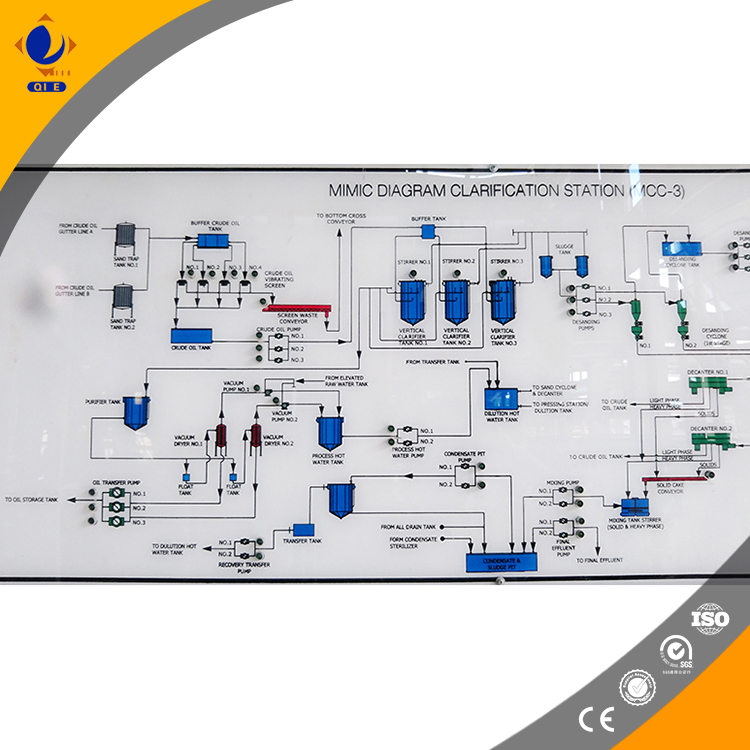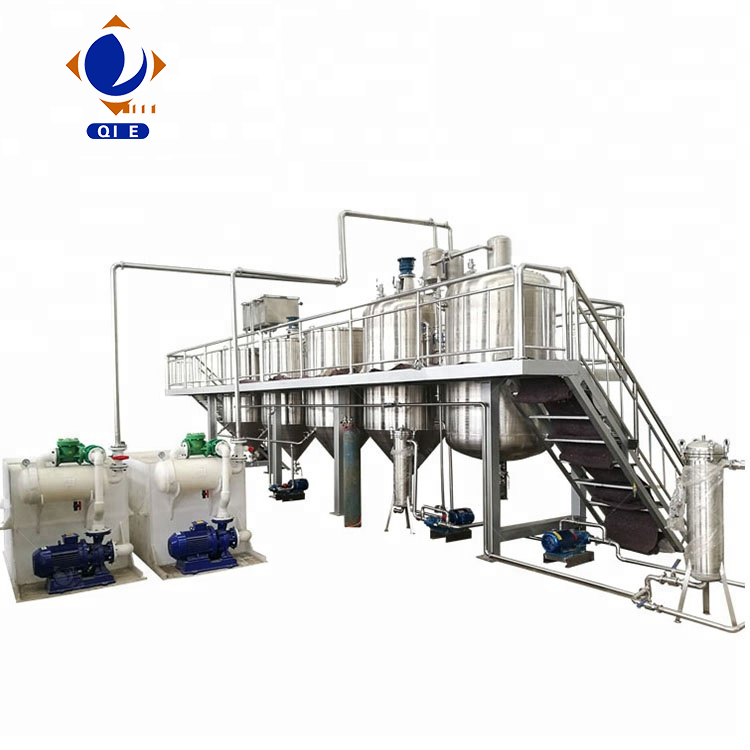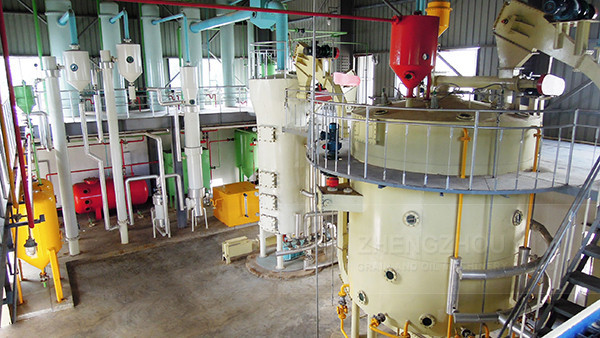
In the global market of vegetable oil exports, the quality of products is crucial for enterprises to gain a competitive edge. This article delves into the technical background and necessity of using continuous refining lines for exporting vegetable oils, aiming to help target customers comprehensively understand the advantages of advanced refining technologies and enhance brand trust and market competitiveness.
Industrial - grade vegetable oil refining mainly consists of four core processes: degumming, deacidification, decolorization, and deodorization. These processes are designed to remove various impurities from crude vegetable oil and improve its quality.
Degumming is the first step in vegetable oil refining. Phospholipids and other gummy substances in crude oil can cause the oil to have a cloudy appearance and affect its stability. The mechanism of degumming is to use water or acid to hydrate the phospholipids, making them aggregate and precipitate. For example, in a typical soybean oil refining process, adding 2 - 3% of water at a temperature of 60 - 70°C can remove about 80 - 90% of the phospholipids. The operation key point is to control the temperature and the amount of water accurately to ensure the best degumming effect.

Free fatty acids in vegetable oil can lead to an unpleasant smell and affect the shelf - life of the oil. Deacidification is usually achieved by using an alkali solution to neutralize the free fatty acids. In practice, adding an appropriate amount of sodium hydroxide solution can effectively reduce the acid value of the oil. For instance, in palm oil refining, through deacidification, the acid value can be reduced from 5 - 10 mg KOH/g to less than 0.1 mg KOH/g. The key is to control the concentration and dosage of the alkali solution to avoid over - neutralization.
Color pigments in vegetable oil can affect its appearance and marketability. The decolorization process uses adsorbent materials such as activated clay or activated carbon to adsorb the pigments. Modern continuous refining lines optimize the selection of adsorbent materials and the operating conditions. By controlling the temperature at 90 - 110°C and the dosage of adsorbent at 1 - 3%, the color of the oil can be significantly improved. For example, a study shows that after decolorization, the Lovibond color of soybean oil can be reduced from 20 - 30 to 2 - 5.

Deodorization is the final step to remove unpleasant odors and volatile substances from the oil. It is carried out under high - temperature and vacuum conditions. By heating the oil to 220 - 260°C under a vacuum of 2 - 6 mbar, volatile substances such as aldehydes and ketones can be removed. This process can also improve the smoke point of the oil. For example, the smoke point of refined sunflower oil can be increased from 180 - 200°C to 230 - 250°C.
Modern continuous refining lines have significant advantages in precise temperature control, vacuum environment control, and adsorbent material selection. Precise temperature control ensures that each refining process is carried out under the optimal temperature conditions, which can improve the efficiency of impurity removal and the quality of the oil. Vacuum environment control can prevent the oxidation of the oil during the refining process and improve the stability of the oil. The optimization of adsorbent materials can enhance the adsorption effect and reduce the dosage of adsorbents.
According to actual production data, different process parameters have a significant impact on the color, smoke point, and oxidation stability of the oil. For example, when the temperature in the deodorization process is increased by 10°C, the oxidation stability of the oil can be extended by about 10 - 15 days.
To ensure the efficient and safe operation of the refining equipment, some on - site operation and maintenance suggestions are provided. For example, the filter cloth should be replaced every 10 - 15 days to ensure the filtration effect. Regularly check the equipment seals to prevent air leakage, which can affect the vacuum environment and the quality of the oil.

Qi'e Group's advanced continuous refining technology offers unique advantages in improving the quality of exported vegetable oils. With precise control and optimization of each process, it can help enterprises meet international food safety standards and enhance market competitiveness. If you want to learn more about our advanced continuous refining technology and how it can benefit your business, please click here to contact us for a consultation.



